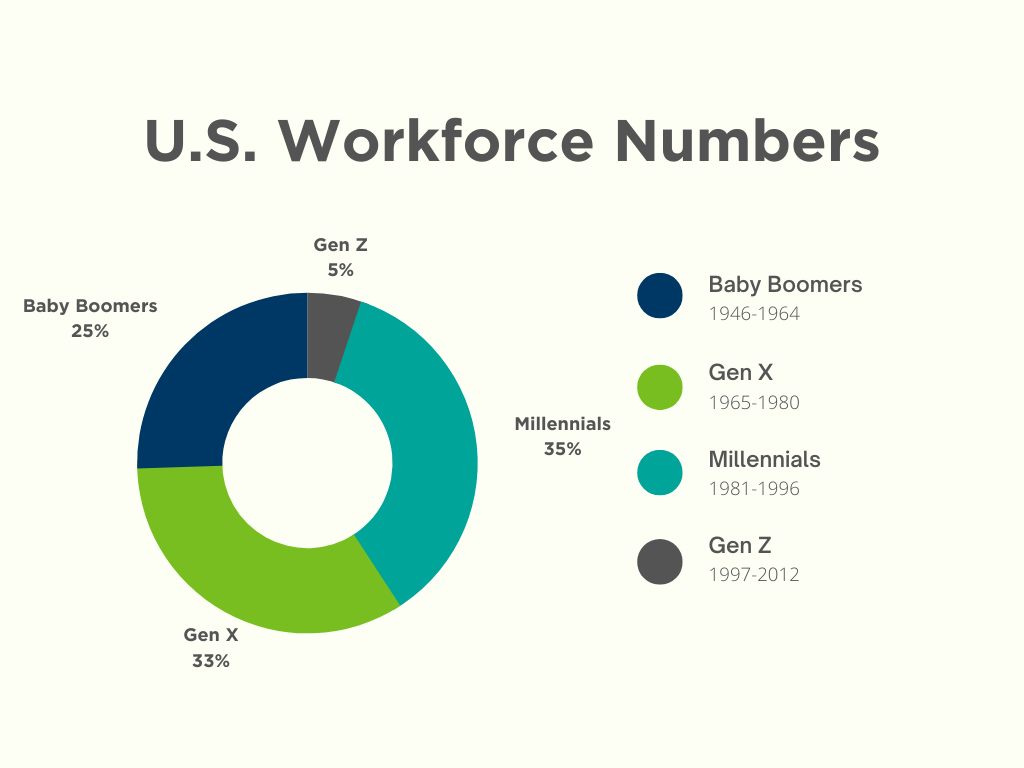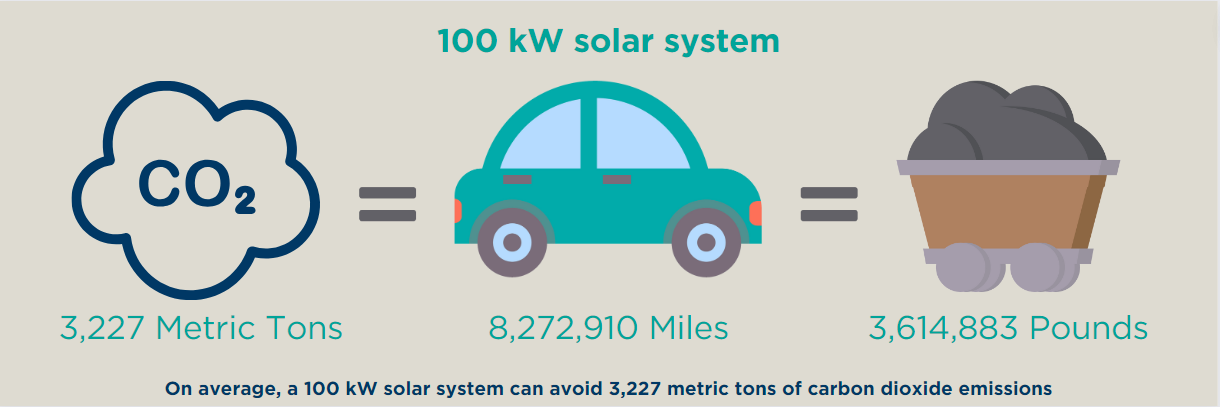Throughout history, older generations have focused on improving or eliminating certain issues with the hopes that the next generation will have a better outcome. In this regard, Millennials and Generation Z (Gen Z) are no different. The Millennial generation is defined as people born between the years 1981 and 1996 and Gen Z is defined as people born between 1997 and 2012; together, they make up around 42.55% of the US population. Millennials and Gen Z have shown a growing concern for global climate health, which is influencing the way they make everyday purchases, invest their money, and even where they work. As a result, it is becoming more important for companies to implement sustainability strategies to appeal to the younger generations in order to see long term success.
Sustainable Investments
Millennials and Gen Z are actively showing increased interest and priority in renewable energy sources as a method to mitigate climate change. It is most evident in their investment habits – 75% of Millennials are willing to change their buying habits to favor environmentally friendly products and the majority of Gen Z are willing to spend 10% more on sustainable products. In addition to that, both groups are investing more in Environmental, Social and Governance (ESG) funds. In 2020, Millennials alone have contributed $51.1 billion to sustainable investment funds. 40% of Gen Z say their investments are driven by “companies with a purpose” and can be expected to follow the path of their older counterparts. As younger people gain wealth and begin to make more substantial investment decisions, their appetite for sustainability will continue to grow and influence the economy.

In addition to investing their money in sustainable organizations, the Gen Z and Millennial generations are also investing their time and skills in sustainable workplaces. Global survey results show that they have high expectations for their employers and believe that business leaders have a significant role to play when it comes to addressing social and environmental issues. Over half of Gen Z (55%) and Millennials (54%) say they research a brand’s environmental impact and policies before accepting a job. 42% of Gen Z and 39% of Millennials have already changed or plan to change their job or industry due to climate concerns. This echoes data seen since 2016 and indicates an unwavering shift in employee attitudes toward sustainable companies. Employees are looking for jobs that align with their personal values and are willing to move around until they find one. Therefore, environmentally friendly business practices can help attract talented workers who are more likely to be engaged with the company and consequently improve employee retention, productivity, and loyalty.
Environmentally Friendly Business
But what is considered an “environmentally friendly business practice”? An environmentally friendly business practice is an action taken by a company that either has a positive impact on the environment or avoids a negative impact on the environment. A great example would be installing renewable energy systems. Rooftop solar is a particularly effective strategy for integrating renewable energy in corporate offices or manufacturing facilities. A rooftop solar system directly offsets emissions-heavy energy sources with clean solar energy. The environmental impact is easily quantified and understood using the Environmental Protection Agency’s greenhouse gas equivalencies calculator. Additionally, solar panels are quickly recognized by the average person and showcase a company’s sustainability program.

However, depending on the type of roof, rooftop solar can be difficult to see from the ground. In this situation, Colite Technologies’ off-grid Renewable Lighting Systems are an eye-catching alternative that still communicates the company’s environmental stewardship. The prominent lighting systems can be installed in parking lots or along roadways and provide completely off-grid lighting. If the solar panel and wind turbine are not enough, you have the option to feature custom banner signage on the poles to solidify the sustainability message as well. Any visitors or employees that see the systems will immediately connect your company with renewable energy and sustainability before they even walk into your facility.
Renewable Lighting Systems and rooftop solar systems are a unique way to differentiate your business and engage curious customers and employees. Gen Z and Millennials are looking for companies with a higher societal purpose that aligns with their concerns for the environment. As they move further into the workforce, it will be critical for businesses to implement sustainability strategies to attract talent and investment for long term success.

How can we help?
Colite Technologies offers sustainable energy solutions that can help your business reach its sustainability goals while also helping you save on monthly utility costs. Contact us today to learn more about how to integrate solar into your organization.

